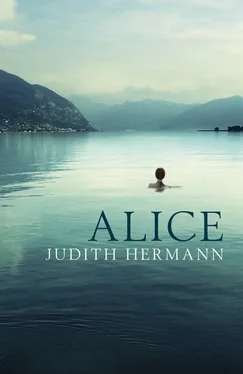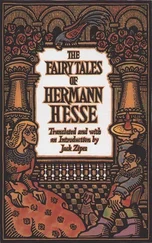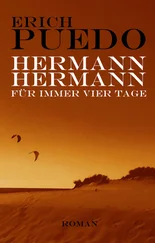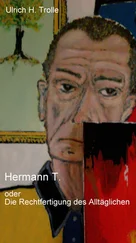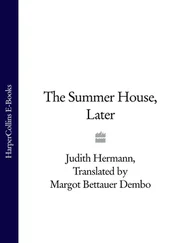Judith Hermann - Alice
Здесь есть возможность читать онлайн «Judith Hermann - Alice» весь текст электронной книги совершенно бесплатно (целиком полную версию без сокращений). В некоторых случаях можно слушать аудио, скачать через торрент в формате fb2 и присутствует краткое содержание. Год выпуска: 2011, Издательство: Clerkenwell, Жанр: Современная проза, на английском языке. Описание произведения, (предисловие) а так же отзывы посетителей доступны на портале библиотеки ЛибКат.
- Название:Alice
- Автор:
- Издательство:Clerkenwell
- Жанр:
- Год:2011
- ISBN:нет данных
- Рейтинг книги:3 / 5. Голосов: 1
-
Избранное:Добавить в избранное
- Отзывы:
-
Ваша оценка:
- 60
- 1
- 2
- 3
- 4
- 5
Alice: краткое содержание, описание и аннотация
Предлагаем к чтению аннотацию, описание, краткое содержание или предисловие (зависит от того, что написал сам автор книги «Alice»). Если вы не нашли необходимую информацию о книге — напишите в комментариях, мы постараемся отыскать её.
Alice — читать онлайн бесплатно полную книгу (весь текст) целиком
Ниже представлен текст книги, разбитый по страницам. Система сохранения места последней прочитанной страницы, позволяет с удобством читать онлайн бесплатно книгу «Alice», без необходимости каждый раз заново искать на чём Вы остановились. Поставьте закладку, и сможете в любой момент перейти на страницу, на которой закончили чтение.
Интервал:
Закладка:
What did he mean by that? And what did it mean for everything else? Alice’s feet left the bottom; she dove down and swam out.
III. Richard
Margaret phoned saying she needed cigarettes and water. Otherwise nothing, but she really did need the cigarettes and the water. It was urgent.
What kind of cigarettes?
Those long, slender ones, for women; Slims. And carbonated water.
Nothing else, really?
No, really, nothing else. Thanks.
I’ll be over in about an hour, Alice said. I’ll hurry.
It was an afternoon in early summer. A Saturday. Actually Alice had been intending to do something else, nothing specific, just something else. It was also Raymond’s day off. I have to go now, she said to Raymond, and Raymond who was lying on the bed, reading, only nodded absent-mindedly and didn’t ask any questions. She put on flat shoes and a light-coloured jacket. She didn’t really need the jacket, didn’t know when she’d be back, maybe late; it might be colder by then. She stood next to the bed, looking down at Raymond’s bare back, at the band of tattooing on his left arm, decorations and words in indigo blue on his always-pale skin. She said, Raymond — he turned round — I’m leaving now.
He nodded. Don’t come back too late. Give them my best wishes.
Alice put on her sunglasses before she stepped outside. She hadn’t been out of the house all day. The street was teeming with people; she held her breath. Lots of people, sitting at long rows of tables under awnings or sun umbrellas beneath the heavy green trees. Talking to one another, without let-up. Nodding, talking, gesticulating people. Loud laughter. The wooden ship in the middle of the park was occupied by a cluster of children. Crying, screaming, overheated children. A nimbus of mothers sitting on benches surrounding the ship. Alice walked by, her hands in the pockets of her too-warm jacket; there were coins in the pockets, her keys, the cellphone, an old movie ticket, sweet wrappers. The sound of basketballs hitting the fence of the basketball court, a sound that, now that it was summertime, could sometimes be heard as early as six in the morning — at six a.m. somebody was already on the court tossing a ball into the basket or against the fence, again and again. Sometimes it woke Alice up. Still tired but astonished at the morning light on the white walls of the room.
The way to Margaret’s, to Margaret and Richard’s, led past the flower stand in the Prenzlauer Allee station. The station hall was large, and there under its arched windows were flowers in plastic vases, an amphitheatre of flowers, in front of which, on a folding chair in the exact centre, sat the Vietnamese flower seller. Sitting there day in and day out. The hall was shadowy; the colours of the flowers were dark, the dark white of lilies, the dark pink of gerbera daisies, and dark iris purple. Chamomile. Snapdragons. Sunflowers. The Vietnamese flower seller was asleep. She slept the sleep of travellers; whenever her head would fall to one side, she would straighten up again with her eyes still closed. In her dreams, Alice thought, the trains come and go; it must be a constant vague noise. Alice stood there, undecided; waking up the flower seller was out of the question. Actually she didn’t want to bring any flowers today, only water and cigarettes, nothing else. There was nothing else she could bring them.
The last time she visited Richard and Margaret she’d bought peonies at this same stand, having first thought about it for a long time: Seven peonies, please, and don’t add anything. An uneven number, a superstition. Five were too few, and she didn’t have enough money for nine. Richard didn’t have a vase. Margaret, who was now staying with Richard all the time in his apartment and never far from his bed, had put the peonies into a milk bottle and pointed out to Richard how beautiful they were. Richard said peonies were his favourite flowers. Alice believed him; he wouldn’t have said it if she’d brought him narcissus or tulips. A coincidence. All three were pleased about it. How long ago was that? Two weeks. It was two weeks ago. Richard had got out of bed; they’d been able to sit in the living room together for an hour. At the oval table in front of a shelf full of books. Richard sat with his back to the books. He was wearing pyjamas and whenever Margaret asked him to, he drank from a glass of water. He was smoking slowly and carefully; too late to stop, it would have made no sense for him to give up smoking now. Alice sat facing him, Margaret between them. Margaret talked, crying and smiling through her tears. Richard didn’t take his eyes off her. As if that were what he still had to do — to look at Margaret.
When she came back from this visit, Alice had asked Raymond, Would you rather die before me or after me? After you, I think, Raymond had said. It had taken a while before he could answer; he seemed to consider the question itself impossible. Why? He asked. He wasn’t quite sure. And you?
She’d shaken her head and put her hand over his mouth. She couldn’t answer him.
Alice crossed the intersection, obeying the signals; there were days when she felt she had to be careful, to be more cautious than usual. She couldn’t say where that came from. Raymond, too, had days like that. Both of them did.
Take care of yourself.
And you take care too.
She waited for the light to turn green; then she walked on. On her left the tram. Overhead the elevated train, rumbling downward, underground. Cars stopped in choreographed rows, seemingly meaningful, following a synchronised set of rules. Beautiful light signals. Above it all, the pale sky. Alice took off her sunglasses and used her elbow to push open the door to the newsagent’s. Barricades of plastic boxes full of sweets. Vampire teeth, white mice, liquorice snails, and behind them the shop’s fat proprietor, feeble movements, breathing and rustling, a heavy animal in its cave. Drums containing lottery tickets. Boxes of chocolate bars, bags of sweets, chocolate surprise eggs. Information, advice, little blinking bulbs, announcements. You could put all this on exhibition, Raymond would say when he stood inside shops like this. Just as it is, transport it to a museum. Alice put some paper money on the little tray in the middle of everything and said, Two packs of Slims, please. It had been years since she last bought cigarettes, and her hands trembled. Two bottles of water? The fat newsagent pointed wordlessly to a shelf next to the counter, and Alice picked out two bottles of Spree Spring Water from among the seven varieties. Did Margaret want the water for herself or for Richard? And did it matter? She wasn’t sure. It could all be very important or not important at all.
The bottles were plastic. Tinted blue. Spring water.
A bag?
Yes, please.
He pushed an orange-coloured bag across the counter, counted out the clinking change into the little tray, and withdrew behind the plastic boxes.
Even as she was standing there facing him she couldn’t say any more what he actually looked like. Broken fingernails. The hem of his sweater frayed. The shop smelling of potting soil and wet paper. She said, Have a good day, said it just to hear how he would answer. He said, The same to you. Said it in an absolutely flat voice. Alice pulled open the door and, with the bag containing the two bottles and cigarette packs pressed to her chest, she turned left and walked down the street.
Along Rheinsberger Strasse. Rheinsberger was a quiet street, in contrast to the street where Alice lived. A simple, quiet, beautiful street, no more, no less. Old acacia trees on both sides, cobblestone pavement, A patchwork quilt of asphalt — light-coloured asphalt, dark-coloured asphalt, seams of tar. On Rheinsberger you could walk along the middle of the traffic lane. Alice walked down the middle with her orange bag, the spring water and cigarettes. A gentle wind moved through the acacias shaking the leaves; light flickered through them onto the asphalt. From the open windows, the sound of televisions, the ringing of telephones, the smell of food, popular songs from radios. A street on a Saturday afternoon in June. Alice thought the street had a Sunday air to it, something about it reminded her of childhood Sundays, of the long drawn-out summer Sundays pulsing with something — as if it were that time just before the onset of a thunderstorm. Waiting for it to come. Waiting for the thunderstorm.
Читать дальшеИнтервал:
Закладка:
Похожие книги на «Alice»
Представляем Вашему вниманию похожие книги на «Alice» списком для выбора. Мы отобрали схожую по названию и смыслу литературу в надежде предоставить читателям больше вариантов отыскать новые, интересные, ещё непрочитанные произведения.
Обсуждение, отзывы о книге «Alice» и просто собственные мнения читателей. Оставьте ваши комментарии, напишите, что Вы думаете о произведении, его смысле или главных героях. Укажите что конкретно понравилось, а что нет, и почему Вы так считаете.
